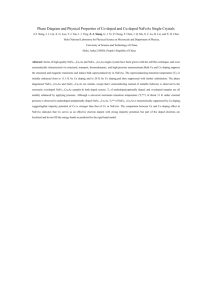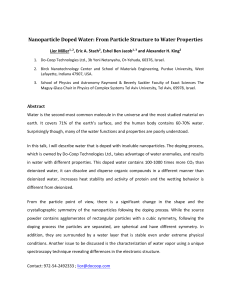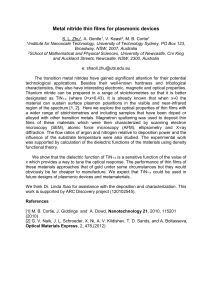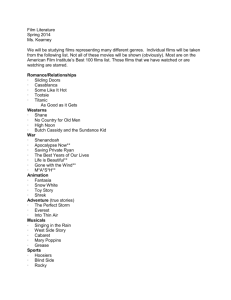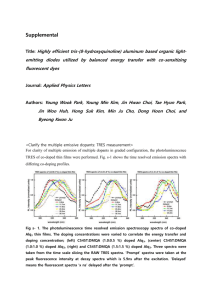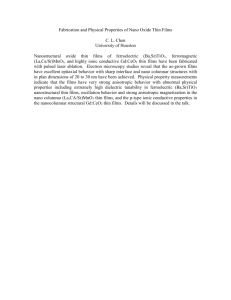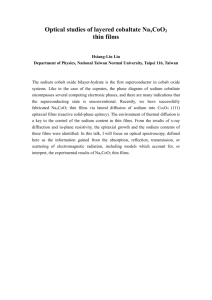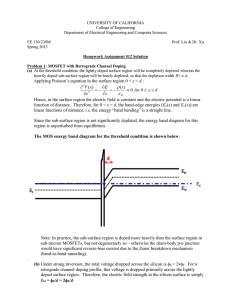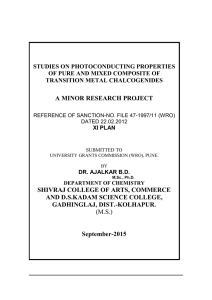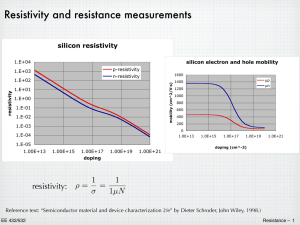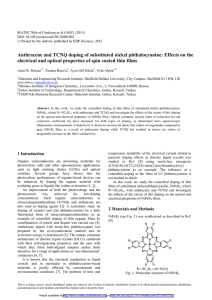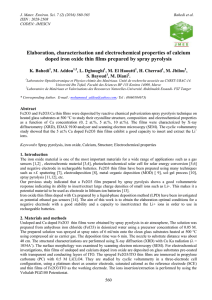Nanoscale electrical characterization of Oxide semiconductors for
advertisement
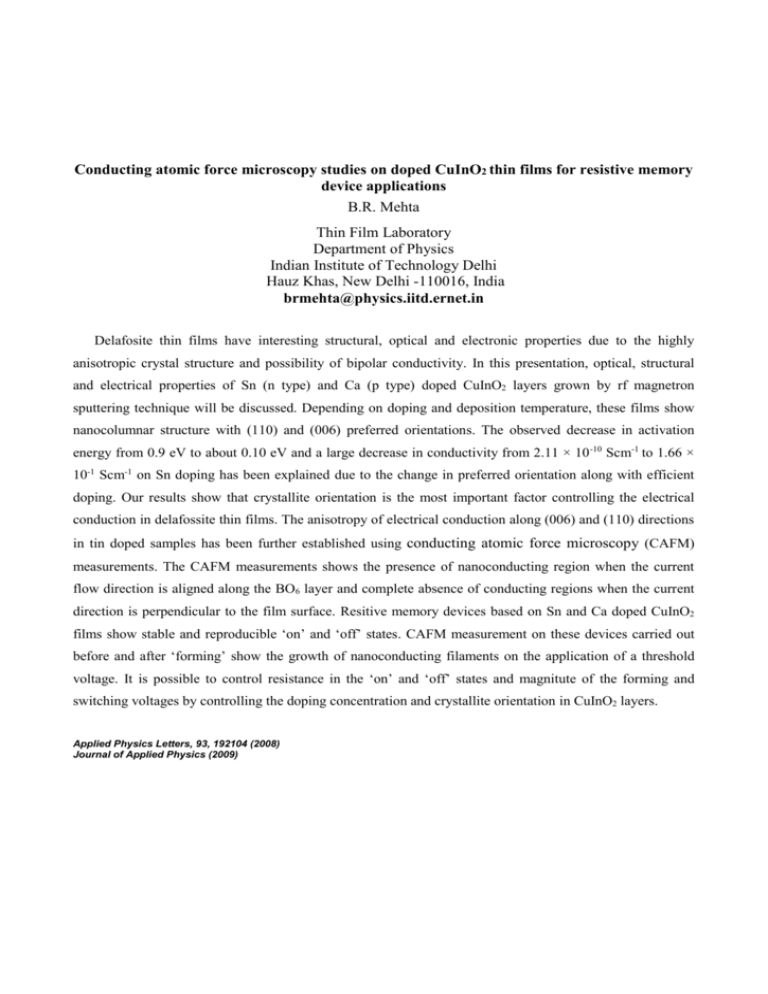
Conducting atomic force microscopy studies on doped CuInO2 thin films for resistive memory device applications B.R. Mehta Thin Film Laboratory Department of Physics Indian Institute of Technology Delhi Hauz Khas, New Delhi -110016, India brmehta@physics.iitd.ernet.in Delafosite thin films have interesting structural, optical and electronic properties due to the highly anisotropic crystal structure and possibility of bipolar conductivity. In this presentation, optical, structural and electrical properties of Sn (n type) and Ca (p type) doped CuInO2 layers grown by rf magnetron sputtering technique will be discussed. Depending on doping and deposition temperature, these films show nanocolumnar structure with (110) and (006) preferred orientations. The observed decrease in activation energy from 0.9 eV to about 0.10 eV and a large decrease in conductivity from 2.11 × 10 -10 Scm-1 to 1.66 × 10-1 Scm-1 on Sn doping has been explained due to the change in preferred orientation along with efficient doping. Our results show that crystallite orientation is the most important factor controlling the electrical conduction in delafossite thin films. The anisotropy of electrical conduction along (006) and (110) directions in tin doped samples has been further established using conducting atomic force microscopy (CAFM) measurements. The CAFM measurements shows the presence of nanoconducting region when the current flow direction is aligned along the BO6 layer and complete absence of conducting regions when the current direction is perpendicular to the film surface. Resitive memory devices based on Sn and Ca doped CuInO2 films show stable and reproducible ‘on’ and ‘off’ states. CAFM measurement on these devices carried out before and after ‘forming’ show the growth of nanoconducting filaments on the application of a threshold voltage. It is possible to control resistance in the ‘on’ and ‘off’ states and magnitute of the forming and switching voltages by controlling the doping concentration and crystallite orientation in CuInO2 layers. Applied Physics Letters, 93, 192104 (2008) Journal of Applied Physics (2009)
